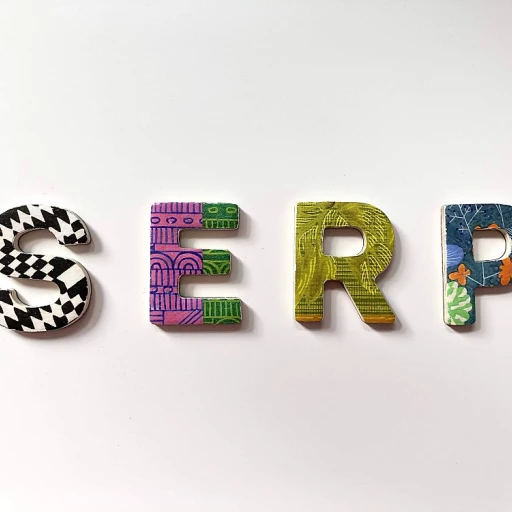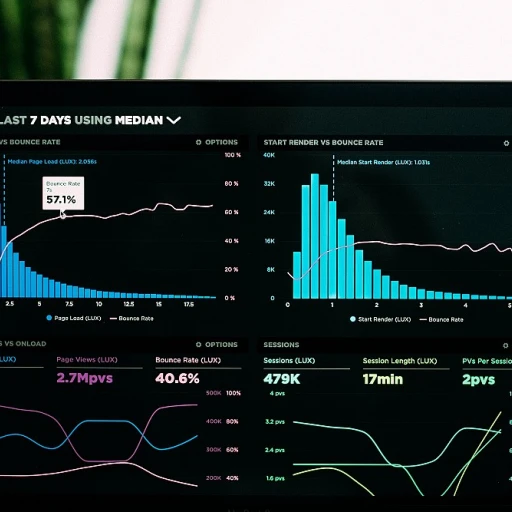
The AI Ethics Conundrum: Steering Clear of SEO Pitfalls
The Dilemma of Ethical SEO in an Automated Era
As artificial intelligence continues to revolutionize the digital realm, the concept of ethical SEO has never been more critical. In a landscape where AI can have unprecedented influence on search engine rankings, it is essential to avoid the pitfalls that can compromise the integrity of SEO practices. A strategic approach to SEO, fueled by ethical principles, not only ensures fair play but also contributes to the sustainability of a brand's online presence.
Identifying and Avoiding Unethical SEO Tactics
Unscrupulous tactics such as keyword stuffing, cloaking, and using private link networks can skew AI-driven results and lead to penalization from search engines. Rapid advancements in machine learning algorithms mean that search engines like Google are constantly evolving to detect and punish such tactics. The application of AI in SEO should be in alignment with the guidelines set forth by search engines to ensure authenticity and relevance of content for users.
Embracing AI While Upholding SEO Ethics
AI tools bring scalability and efficiency to SEO strategies, but integrating these technologies with a commitment to ethical standards is paramount. From natural language processing to predictive analytics, AI can enhance SEO efforts when used with transparency and accountability. Ethical AI SEO strategies prioritize user experience, delivering genuine value content-wise and interaction-wise while avoiding the manipulation of ranking algorithms.
Transparency in AI Algorithms and Ethical Implications
As AI systems grow more complex, the transparency of how algorithms function and impact search results becomes vital. SEO professionals need to consider the ethics involved in using AI that influences search engine visibility. A lack of transparency can lead to ethical dilemmas such as bias in search results and the potential for AI to create echo chambers. For SEO to remain ethical, there must be a clear understanding and communication of how AI tools influence content ranking and visibility.
Commitment to Ethical Principles: The Bedrock of Trustworthy SEO
To maintain trust with consumers and search engines, SEO practitioners must commit to ethical principles that guide AI integration. This means avoiding deceptive practices, ensuring data privacy, and considering the broader societal impact of SEO tactics. Ethical SEO in the age of AI is not just about following rules; it's about fostering trust and credibility in a digital ecosystem where AI has the power to shape perceptions and access to information.
Algorithm Accountability: Mitigating Bias in AI-driven SEO
Unraveling Bias in Search Algorithms
In today’s digital marketing landscape, the importance of SEO cannot be overstated. But as artificial intelligence (AI) becomes more intertwined with search engine algorithms, the risk of bias inadvertently seeping into SEO strategies increases. At the core of algorithm accountability is the need to ensure that the AI systems that drive search engine rankings are not perpetuating unfair practices or providing skewed information.
Recent studies indicate that machine learning algorithms can, and often do, inherit biases present in their training data (Source: MIT Technology Review). For SEO professionals, this means vigilance is paramount in monitoring the potential biases in AI tools used for keyword optimization, content generation, and backlink strategies.
Guiding Ethical Machine Learning
To mitigate these biases, there’s a surge in developing ethical machine learning models. Google's BERT update, which aims to understand the natural language in user searches, can be seen as a step towards more ethical AI in SEO (Source: Search Engine Journal). By focusing on understanding intent, search engines move away from a solely keyword-focused approach, reducing the chance that biases hidden in keyword patterns dictate the content landscape.
Another effort involves the introduction of AI ethics guidelines for developers, ensuring that from the ground up, algorithmic fairness is baked into AI SEO tools. A combination of ethical training data, sensitivity analysis, and inclusivity programming helps ensure SEO tools elevate content based on merit rather than bias.
Establishing Transparent SEO Strategies
Transparency in AI-driven tools is another key component of ethical SEO. By revealing how AI algorithms work and the factors they consider, SEO experts and marketers can make more informed decisions and advocate for equitable visibility across diverse content. Companies like Moz and Ahrefs provide insights into SEO practices and algorithm changes, empowering users to adapt strategies that support ethical optimization.
Emphasizing transparency also helps demystify AI for SEO practitioners, enabling a more analytical approach to crafting and adjusting campaigns. It also builds trust with clients and the broader user base, showing a commitment to ethical SEO practices.
SEO's Role in Promoting Fair Digital Practices
By actively engaging in the conversation on AI ethics, SEO professionals take a stand for responsible digital marketing. It’s about recognizing the power inherent in SEO to shape public opinion and access to information. Understanding and implementing ethical AI practices in SEO not only protects against biases but also promotes a digital space that reflects a diverse and equitable society.
Engaging in ethical SEO practices means creating and curating content that genuinely reflects the needs and languages of varied audiences. This intentional approach not only upholds the integrity of the digital space but also ensures that SEO campaigns reach their target audience effectively and fairly.
In essence, the onus is on SEO experts to chart the course for AI ethics by adopting strategies that prioritize transparency and fairness. By doing so, they serve as beacons guiding the online world towards a future where technology empowers rather than excludes, and where AI serves to enhance human understanding rather than distort it.
Legal Landscapes: Charting the Course for AI Ethics in SEO
Navigating Legal Frameworks for Ethical AI Use
As digital marketers refine their search engine optimization strategies with artificial intelligence, there's an emerging need to understand the evolving legal landscapes. Compliance with laws such as the General Data Protection Regulation (GDPR) is imperative, especially when it involves AI and personal data. GDPR sets out clear expectations for data protection and privacy, an area deeply entwined with AI-driven SEO practices. Similarly, the California Consumer Privacy Act (CCPA) and recent guidelines proposed by the European Union on Artificial Intelligence emphasize the need for transparency in algorithms and data processing used in SEO.
For instance, the ethical use of AI in SEO must ensure that personal data is not used to manipulate search engine rankings unethically. As we delve into the depths of SEO and AI integration, staying abreast of legal requirements is critical. Neglecting these could lead to hefty penalties and a tarnished reputation. In the long term, aligning SEO practices with ethical standards can foster trust and reliability among users.
The Intersection of Intellectual Property Rights and AI SEO
In the context of AI and SEO, intellectual property rights (IPRs) come into sharp focus. Search algorithms powered by AI have an appetitive requirement for data, yet that data often has ownership claims. When deploying AI tools that crawl and index web content, it's essential to navigate IPRs respectfully. Misuse of copyrighted material or patented algorithms could result in legal actions against a business, creating an unpredictable obstacle course for SEO professionals.
Moreover, the proprietary nature of search algorithms held by engines like Google emphasizes the necessity of using AI in ways that do not infringe upon these closely guarded secrets. Understanding the boundaries of what constitutes fair use of AI technologies in collecting and analyzing data while considering IPRs is fundamental in maintaining an ethical SEO strategy.
Precedent-Setting Cases Shaping AI SEO Ethics
An examination of recent legal proceedings highlights the importance of ethical AI use in SEO. One case that sets a significant precedent involved a company that was found to use AI to programmatically generate content, mimicking competing brands and siphoning off their web traffic. This not only violated fair competition principles but also misled consumers — a breach of ethical SEO practices.
As more of these cases come to light, they collectively contribute to a broader understanding of the dos and don'ts in AI SEO. They serve as instructive examples for SEO practitioners to remain vigilant in their AI applications, ensuring that their methods conform to both ethical and legal standards. It's clear that leveraging AI in SEO necessitates a comprehensive grasp of current laws and a keen eye on upcoming legal precedents which could quickly redraw the boundaries of permissible SEO strategies.
Implementing Ethical AI SEO Practices Within Legal Boundaries
Implementing AI-driven SEO strategies within the confines of the law involves a careful balance. SEO specialists must ensure that their AI tools do not inadvertently break laws or cross ethical lines. This translates to a robust review of AI models and algorithms for bias, respect for user privacy, and adherence to copyright laws. Maintaining this balance is not just a matter of legal compliance but also of moral responsibility.
A strategic approach would entail regular audits, comprehensive data governance policies, and continuous training for SEO teams on the latest legal developments affecting AI. Such proactive measures can help circumvent the risks associated with AI in SEO while leveraging its considerable benefits – a prime example of ethical AI SEO in action.
The Human Element in AI SEO: Balancing Automation with Empathy
A Synergetic Blend: Human Ingenuity and Machine Efficiency
In the dynamic realm of Search Engine Optimization (SEO), the introduction of Artificial Intelligence (AI) has been a game-changer, propelling us towards new horizons of data processing and content optimization. However, as we embrace this technological boon, it is pivotal not to lose sight of the human touch. Combining the analytical prowess of AI with the nuanced understanding of human behavior creates a synergy that enhances SEO efforts substantially. After all, at the core of every search query is a person seeking answers.
Maintaining Ethical Guardrails in the Pursuit of SEO Excellence
As we've explored earlier, the ethically-aligned use of AI in SEO is critical to avoid pitfalls and biases that could mislead or disadvantage users. In this context, the role of SEO professionals transforms – adding the guardianship of ethics to their skill set. This involves a conscious effort to monitor AI algorithms, ensuring that while they optimize for search engine rankings, they do not compromise on integrity or accuracy of information. By infusing AI tools with an ethical framework, guided by empathy and the end-user's needs, SEO specialists can uphold a high standard of SEO practice that serves everyone justly.
Real-World Integration: AI Empathy in SEO Practices
Let's consider real-life applications that demonstrate the harmonious integration of AI and human empathy in SEO. The design of user-centric content that addresses specific queries, keeps engagement high, and provides value is a testament to this partnership. When machine learning analyses vast data to inform content creation, and humans tailor this content to resonate on a personal level, the result is SEO that connects and converts. Ethical decision-making embedded in the AI process ensures relevance and respect for user intent, culminating in a positive user experience and a trustworthy digital presence.
Towards a Future with Conscientious AI-Driven Optimization
The future of SEO is indelibly intertwined with AI's capabilities. However, it is imperative to proceed with conscientiousness. The balance of automation and empathy not only caters to the immediate goals of SEO but also fosters a sustainable digital ecosystem where the trust between users and online content flourishes. By championing the human element amidst the circuitry of AI, SEO professionals pave the way for an ethical digital marketing future. This balance ensures that we remain attentive to the nuanced demands of our audiences while crafting our SEO strategies around the substantial powers of AI.
Ethics in Action: Case Studies of AI in SEO Done Right
Real-World Success Stories: AI Enhancing SEO with Integrity
Discovering how ethical considerations in artificial intelligence can positively impact SEO is best illustrated through real-world examples. Industry leaders who deploy AI in their search engine optimization strategies often strive for a blend of effectiveness and ethical responsibility. One such example is a renowned e-commerce platform that utilizes AI to optimize search results, ensuring they are equally beneficial for both users and businesses. By carefully crafting their algorithms to avoid any discriminatory outcomes, they show a commitment to algorithm accountability and uphold a standard of equity.
Spotlight on Transparency: A Tech Giant's Ethical Framework
It's also worth highlighting how major tech companies are setting precedents for ethical AI use in SEO. A leading search engine, for instance, has been transparent about its efforts to address AI ethics. Their published guidelines outline principles such as avoiding social biases in AI, demonstrating the company's dedication to ethical SEO practices. Their approach not only fosters trust with their users but also encourages industry-wide standards for responsible AI use in digital marketing.
Pioneering Fairness: Paving the Way with Balanced Algorithms
Another breakthrough case concerns a startup specializing in SEO solutions that is charting the course for AI ethics in SEO. By basing their services on the premise of algorithmic fairness, they have pioneered software that enhances website visibility while diligently preventing any inadvertent reinforcement of existing societal biases. Their ongoing commitment to mitigating bias in AI-driven SEO is a powerful testament to the potential of combining high-tech innovation with high ethical standards.
Fostering Industry Standards: Collaborative Efforts Toward Ethical AI
Collaboration among SEO professionals and organizations is key to steering the conversation about ethical AI use. Industry roundtables and conferences where SEO experts, developers, and ethicists come together have produced actionable frameworks and best practices. These collective efforts aim to ensure that SEO tools powered by AI not only serve to rank websites effectively but also promote a digital ecosystem grounded in ethical principles and the human element.
Human-Centric AI Tools: Products Shaped by Empathy and Ethics
The development of AI SEO tools with a human-centric focus is gaining momentum. Innovators in this field are creating systems that understand natural language with a high degree of empathy, thus ensuring that the content being optimized resonates with users on a more personal level. They are a prime example of how AI can be harnessed to elevate SEO strategies, merging superior technology with a genuine understanding of human needs and ethical considerations.













